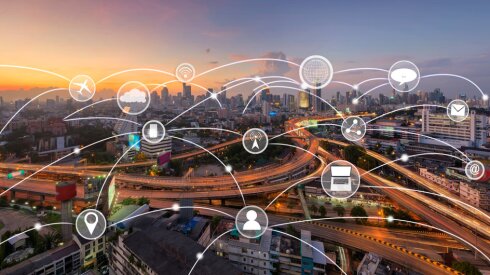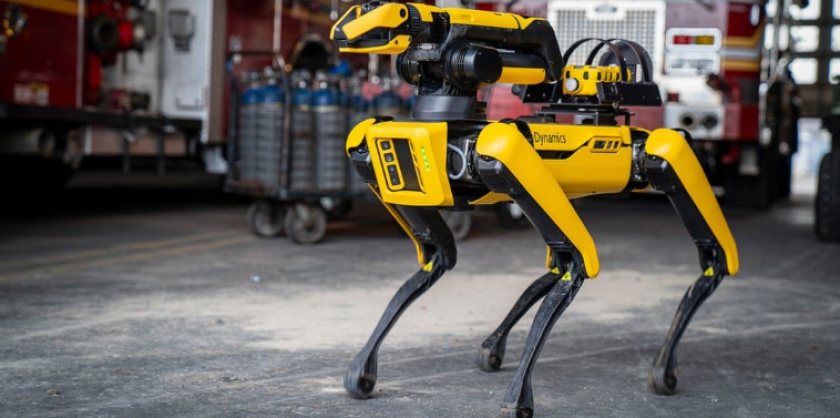FutureStructure Data
-
Staffing shortages and the lasting shifts to commuter patterns has pumped the brakes on the recovery of transit ridership. Even as gas prices reach record highs across the country, ridership hasn’t seen a large uptick.
-
Each winning city will receive an individualized Readiness Workshop and host of tech tools to help further its efforts toward becoming a smart city.
-
Two projects in Georgia and New York are exploring new technologies which embed power generation, computing and more into paving, opening up this right-of-way space to accommodate solar panels and smart city sensors.
More Stories
-
Highways and bus routes. Weather and car crashes. Counties and cities. What happens when all that data comes together in one place? A look inside a major transportation initiative shaping up in Columbus, Ohio.
-
An updated air-quality monitoring app covering large swaths of Southern California is combining data streams from both government and crowd-sourced sensors to give readings at the neighborhood level.
-
Public sector transit agencies are expected to continue their transition away from fossil fuel burning fleets, expanding the use of electric buses, despite setbacks by the COVID-19 crisis.
-
The Chattanooga Area Regional Transit Authority and its academic partners were awarded a $3.9 million grant to develop machine learning models for insights into how to best deploy electric buses and on-demand transit.
-
Rather than shy away from shared mobility, riders seemed to welcome the open-air ride of e-scooters; while at least one California city used the summer to launch a pilot delivery project using small sidewalk-roaming robots.
-
Fleet management officials in Louisiana and California are using technology to better track their vehicles, as well as to gain detailed insights into vehicle operations for both gas- and electric-powered autos.
-
Transportation leaders from San Diego; Columbus, Ohio; and Centennial, Colo., shared how smarter transportation helps to achieve larger regional goals around sustainability, equity and greener urban development.
-
On the opening day of the annual Smart Cities Connect Conference and Expo, city officials from around the country discussed how the COVID-19 crisis has ushered in changes, which are helping them to become more resilient.
-
A recent study examined projects to reduce car use and increase walking and biking on neighborhood streets in five cities, offering a look into how transportation data can be used to craft similar future projects.
-
The nearly overnight shift to remote working situations had a broad impact on commutes across the country, but the changes have also raised questions when it comes to planning for the future of transportation.
-
Austin’s Capital Metro is piloting a mobile app that siphons real-time bus location data to help officials make better scheduling decisions. Officials hope the tool will be useful in pushing back on the disruptive force that is COVID-19.
-
New analysis by the Urban Institute explores the transit challenges for working poor living in suburbs in four U.S. metros. The data study forms the basis for new conversations around transportation equity.
-
Hundreds of smaller communities across the country — with limited routes into and out of town — face greater danger when confronted with emergency evacuations, according to a risk assessment study by Streetlight Data.
-
The growing laundry list of connected devices and vehicles continue to make the case for platforms that pull all of the data into one easily accessible system. Two projects are doing just that in Georgia and South Dakota.
-
As public transit in the United States pulls itself out of the COVID-19 downturn, watch for it to fast track innovation as it aims to achieve increased efficiencies, responsiveness and more rapidly respond to community needs.
-
In a recent Meeting of the Minds panel discussion, transportation experts weighed in on how the future of urban mobility innovation will be tied to a wide range of data sources and thorough analysis.
-
Four months after the acquisition of a competitor, the Florida-based smart streetlight company has raised money to invest in new products and betting on a bright future for 5G and smart city technology.
-
A new report by the Transportation Research Board looks at public transit’s declining ridership trends from 2012 to 2016, due in part to housing and demographic changes, and of course Uber and Lyft.



























